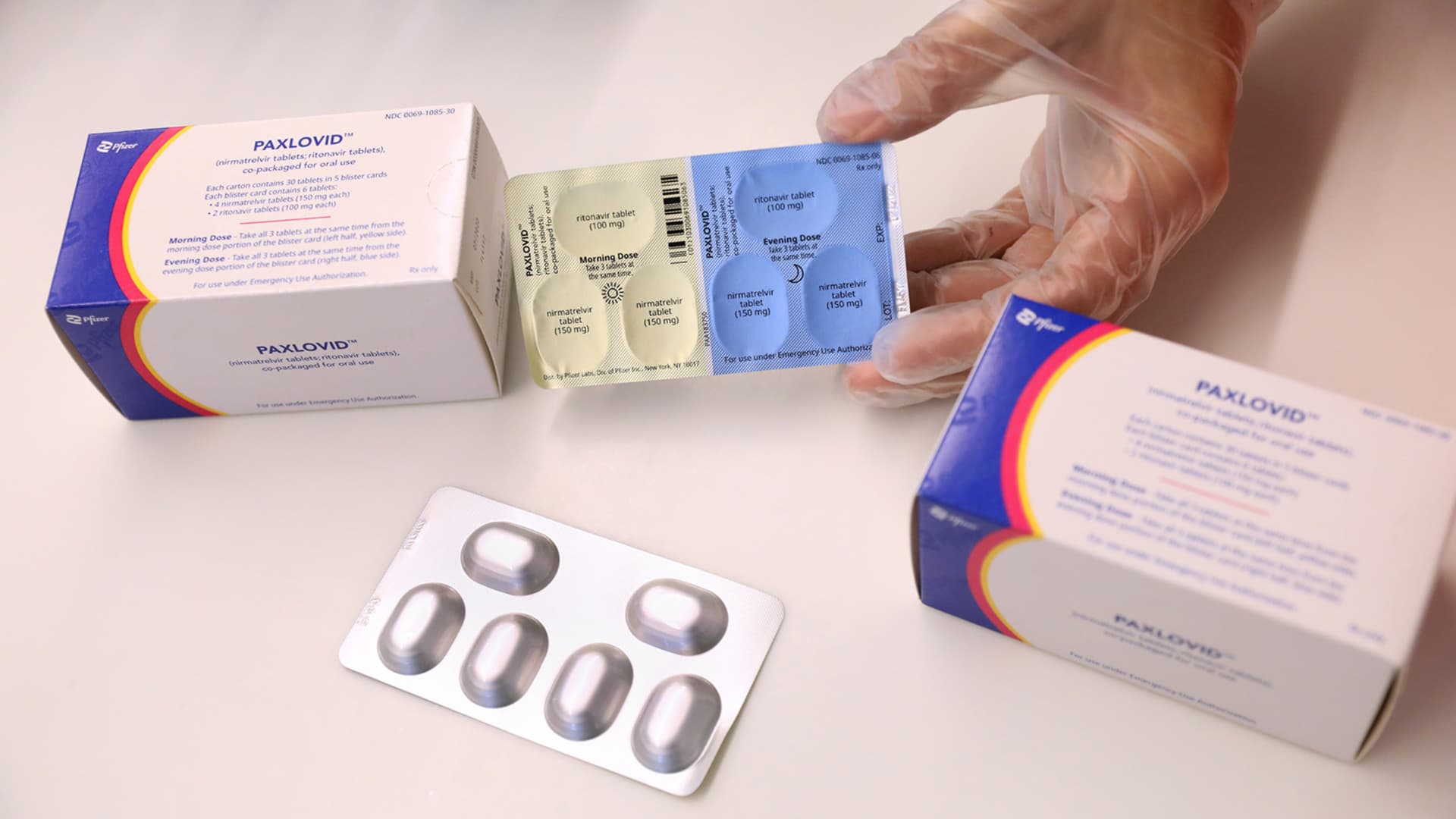Federal authorities charged a former Pfizer employee and his close friend Thursday with illegally trading shares based on non-public trial results on the pharmaceutical company’s Covid antiviral pill Paxlovid.
The Justice Department and the Securities and Exchange Commission both announced respective insider trading charges against Amit Dagar, a former senior statistical programming lead at Pfizer, and his friend Atul Bhiwapurkar.
Dagar, who helped manage and analyze Paxlovid clinical trial data, and Bhiwapurkar “participated in an insider trading scheme to reap illicit profits from options trading based on inside information” about the then-unreleased Paxlovid results in November 2021, according to the DOJ.
The two individuals sold their Pfizer call options at “significant profits” totaling more than $350,000, the DOJ said in a release.
“The charges in this case relate to the personal conduct of a former Pfizer employee in violation of the company’s policies,” a Pfizer spokesperson told CNBC. “Pfizer is cooperating with the government’s investigation.”
Dagar, 44, of Hillsborough, New Jersey, was arrested Thursday morning and charged with four counts of securities fraud, each of which carries a maximum sentence of 20 years in prison, the DOJ said. He was also charged with one count of conspiracy to commit securities fraud, which carries a maximum sentence of five years in prison.
Bhiwapurkar, 45, of Milpitas, California, was also arrested early Thursday and charged with two counts of securities fraud and one count of conspiracy to commit securities fraud, according to the DOJ.
Patrick Smith, an attorney representing Dagar, said his client denies the allegations and “looks forward to defending himself in court.”
Smith also said “nobody at Pfizer ever told” Dagar the results of the Paxlovid trial.
Michael Bachner, an attorney for Bhiwarpukar, said his client denies trading on inside information and based his decisions on publicly available information about the efficacy of the drug.
Bhiwarpukar “intends to vigorously defend against these charges,” according to Bachner.
On Nov. 4, 2021, Dagar learned that a mid-stage Paxlovid trial produced positive results a day before they were scheduled to be made public, the SEC’s complaint alleges.
The trial found Paxlovid reduced hospitalization or death by 89% compared with placebo in non-hospitalized high-risk adults.
Dagar’s supervisor informed him via chat that the trial “got the outcome” and there would be a “press release tomorrow.” Dagar responded with “oh really” and “kind of exciting,” the complaint alleges.
Within hours of that exchange, Dagar purchased “short-term, out-of-the-money” Pfizer call options. An out-of-the-money call option allows a person to purchase a stock at a price greater than the current market price.
Prior to that day, Dagar had never used his brokerage account to trade in Pfizer options and had not traded the company’s stock since 2018, the complaint alleges.
Dagar allegedly shared the successful results with Bhiwapurkar, who purchased similar call options in Pfizer and tipped off another friend who was not named in the complaint.
Pfizer’s stock price jumped nearly 11% after the company released the Paxlovid data on Nov. 5, 2021.
Dagar, who purchased $8,380 in Pfizer call options, generated a one-day profit of approximately $214,395, the SEC said. That represents an investment return of approximately 2,458%, according to the agency.
Bhiwapurkar, who purchased $7,400 in call options, generated a one-day profit of approximately $60,300, the SEC said.
The unnamed individual who Bhiwapurkar tipped, generated a one-day profit of approximately $29,770, according to the charges.
“As alleged in our complaint, Amit Dagar misused his access to confidential clinical trial results to enrich himself and his friend, Atul Bhiwapurkar,” Joseph Sansone, chief of the SEC’s Market Abuse Unit, said in a release.
“Dagar and Bhiwapurkar allegedly leveraged this information by trading out-of-the-money call options to generate massive one-day returns. Thanks to our surveillance, the defendants must now face the consequences of their greed,” he continued.
